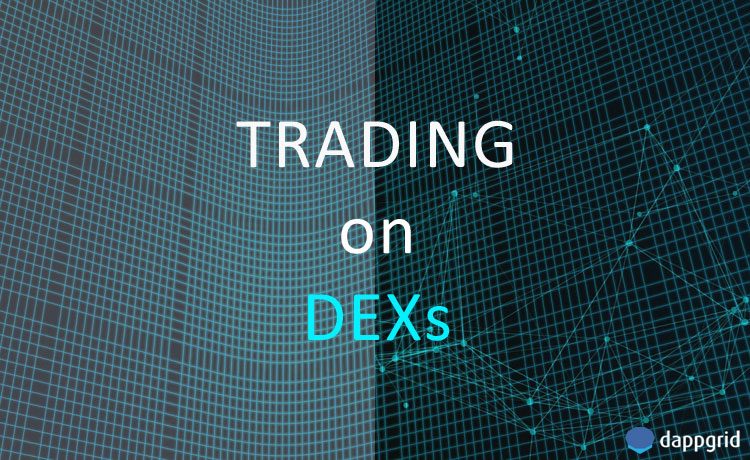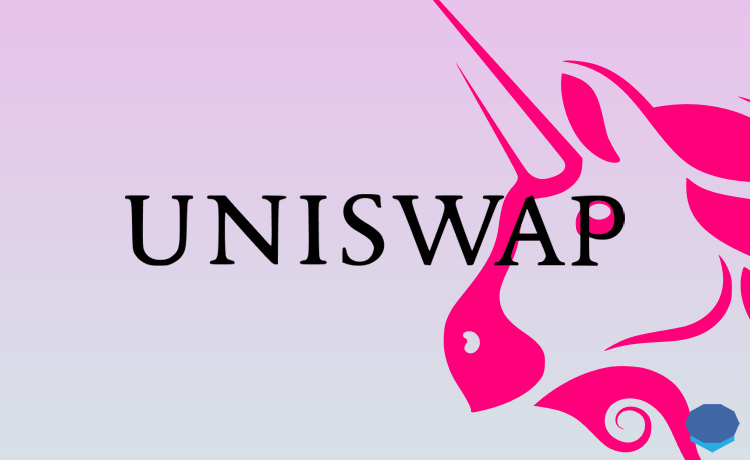Decentralized exchanges are great platforms for those who want to trade cryptocurrencies from their own wallets and explore different opportunities.
There are various kinds of decentralized exchanges you can use to trade cryptocurrencies. Having an order book, KYC, etc. some of them like IDEX are similar to centralized exchanges. There are also automated market makers (AMMs) like Uniswap, SushiSwap, Balancer and Kyber.
And we have also DEX aggregators like 1inch and Matcha, which aggregate liquidity from various sources to give users the best prices on the market.
In this guide, you’ll learn the basics of using decentralized exchanges. I’ll give you the cryptocurrency wallets you can use to trade on decentralized exchanges, the best, high volume decentralized exchanges and other tools that will help you while trading on decentralized exchanges.
How to use decentralized exchanges
What is a decentralized exchange?
A decentralized exchange is a cryptocurrency exchange that allows users to trade cryptocurrencies without giving up control of their cryptocurrencies.
The main difference between centralized cryptocurrency exchanges and decentralized ones is that in centralized exchanges, users need to transfer their cryptocurrencies to the wallets that are owned and controlled by the exchange to trade.
But in decentralized exchanges, users can trade directly from their own wallets or by depositing tokens into smart contracts. Through smart contracts or simply allowing users to trade tokens from their wallets decentralized custody of assets is attained.
But that alone does not make the platform fully decentralized, there is more to decentralization such as decentralized order matching, etc. which you can read more about in this article if you are interested in technical aspects of decentralized exchanges.
While some of the decentralized exchanges like IDEX require users to sign up to trade, with decentralized exchanges, there is usually no need for a strong password, 2FA or SMS verification, because there is no account to protect, the only thing users need to protect is their wallets, that is to say, private keys.
Therefore, when it comes to trading on decentralized exchanges, a secure wallet and knowing how to protect it are of great importance.
Getting a secure wallet to trade on decentralized exchanges – The best cryptocurrency wallets for traders
There are many decentralized exchanges available now for the trading of tokens based on different blockchains such as Ethereum, EOS, TRON and Binance Chain, which you can check out in the list of decentralized exchanges.
All of them come with different options of wallets that users use to trade on the exchange. The popular wallet options for using decentralized exchanges are as follows:
Ethereum-based decentralized exchanges: MetaMask, Ledger hardware wallets, Trezor wallets, Trust Wallet, Coinbase Wallet & keystore file / private key.
EOS-based decentralized exchanges: Scatter, TokenPocket, MathWallet and LeafWallet.
TRON-based decentralized exchanges: GuildWallet and TronLink.
BSC-based decentralized exchanges: MetaMask, Trust Wallet and TokenPocket.
Binance DEX: Ledger and Trezor hardware wallets, keystore file and mobile wallets such as Trust Wallet.
Waves DEX: Ledger hardware wallets, Waves Keeper & Seed or private key.
It is well known that using keystore files or private keys to access wallets or decentralized applications is not a trusted method.
The best and most trusted wallets to use with decentralized exchanges are Ledger and Trezor hardware wallets which store private keys in a chip, thus they are never exposed to the internet or other devices.
If you use decentralized exchanges to trade tokens or trade only on centralized exchanges, either way a hardware wallet is a must. Not all dapps support hardware wallets, but you can simply connect your hardware wallet to MetaMask and use dapps safely.
Check out the articles below to learn more about Ledger Nano X and connecting it to MetaMask:
To sum up, the safest and most cost-effective option for traders is getting a hardware wallet like Ledger, considering that your cryptocurrencies probably worth more than a few hundred dollars. You can better protect your funds and avoid future regrets with a hardware wallet.
If you don’t have one now, at least make sure you rather use MetaMask or other safe wallets instead of using private key / keystore file on decentralized exchanges and other kinds of dapps.
Choosing a decentralized exchange to trade cryptocurrencies- The best decentralized exchanges for traders
Once you have a secure wallet, don’t feel discouraged to use decentralized exchanges. But, just like centralized exchanges, you need to know about trading volume, listed tokens and such stats of decentralized exchanges before trading.
You can go to the guide below to learn about sites you can use to track various stats of decentralized exchanges:
For example, according to DEXWatch; IDEX, Bancor and Uniswap are exchanges with the highest volumes respectively in the last 24 hours at the time of writing. And DAI is the highest volume token in the last 24 hours.
In general, the decentralized exchanges below are popular, high volume decentralized exchanges which you can use to trade Ethereum, EOS and TRON tokens.
Decentralized exchanges with high volume
There are mainly three types of decentralized exchanges in the market right now:
- Decentralized exchanges with order books such as IDEX, ForkDelta and Newdex which more resemble centralized exchanges.
- Decentralized exchanges without order books (AMMs) such as Uniswap, SushiSwap and Balancer.
- DEX aggregators which aggregate liquidity from multiple decentralized exchanges to achieve the best rates such as 1inch and Matcha.
You can try using and trading on the decentralized exchanges below which have higher volume compared to most other DEXes:
Ethereum-based DEXes: Uniswap, Balancer, SushiSwap, KyberSwap, IDEX, 1inch.exchange, Matcha and dYdX.
EOS-based DEXes: Newdex and WhaleEx.
TRON-based DEXes: TronTrade, JustSwap and Poloni DEX.
BSC-based DEXes: PancakeSwap
Before choosing a decentralized exchange to trade tokens, check out the list of decentralized exchanges for other information such as fees and supported wallets.
After choosing the decentralized exchange you will use, you need to connect your wallet to the exchange to start trading tokens. Depending on the decentralized exchange you will use, trading experience might not be that smooth as you used to with centralized exchanges.
You may also sometimes have to pay high transaction fees for your transactions due to the congestion in the Ethereum network. But using decentralized exchanges is definitely easier than you think with the help of good user interfaces and guides.
As the number of DEXes with high trading volumes is very limited, you’ll probably try only using a few exchanges. So you don’t need to know about how all these decentralized exchanges work and differ from each other.
Check out the guides to some of the most popular decentralized exchanges below:




























